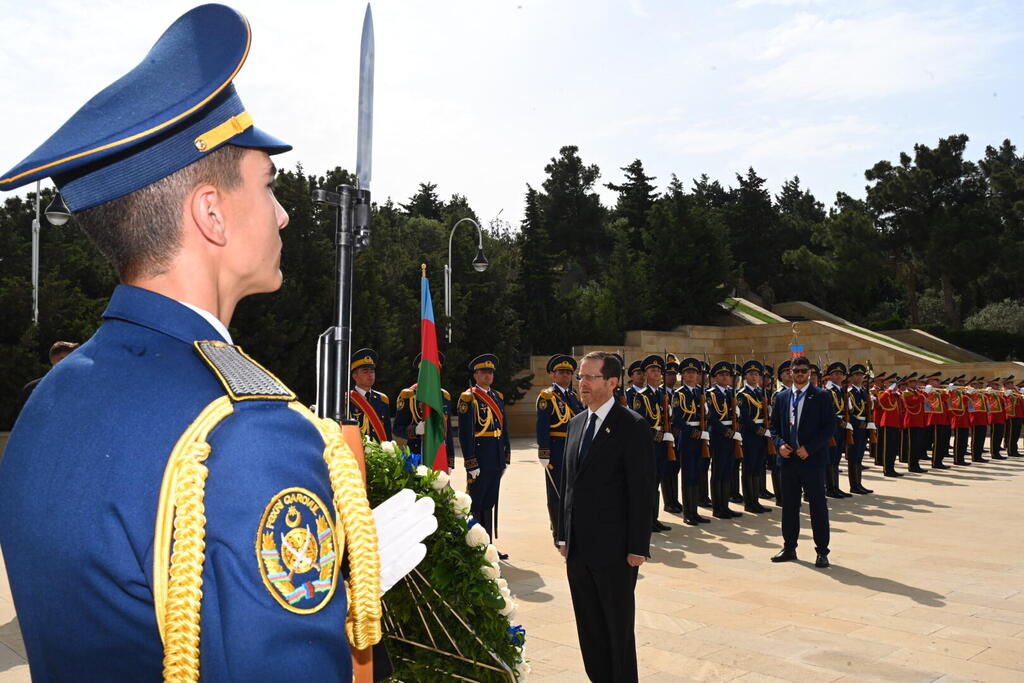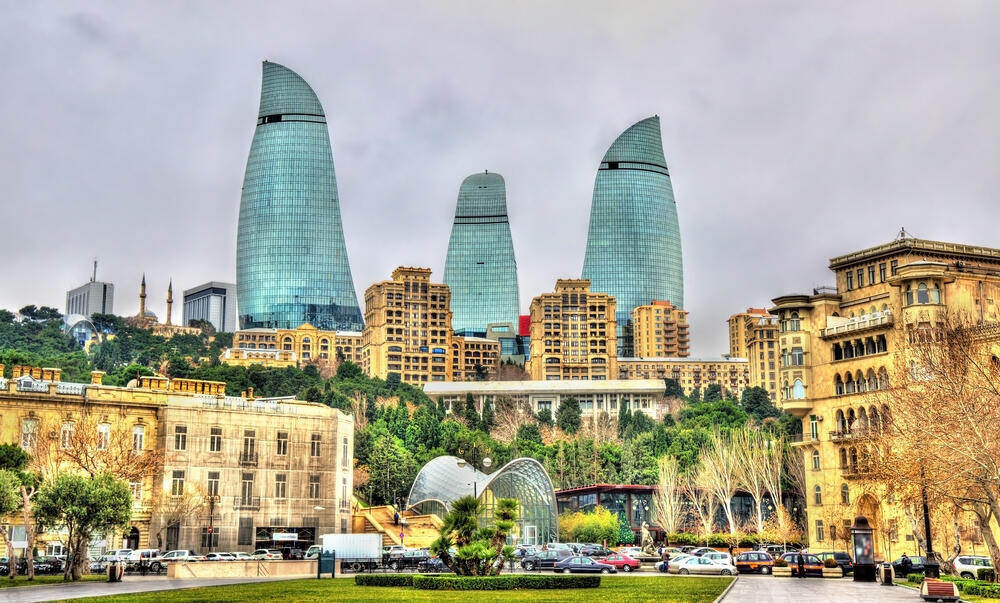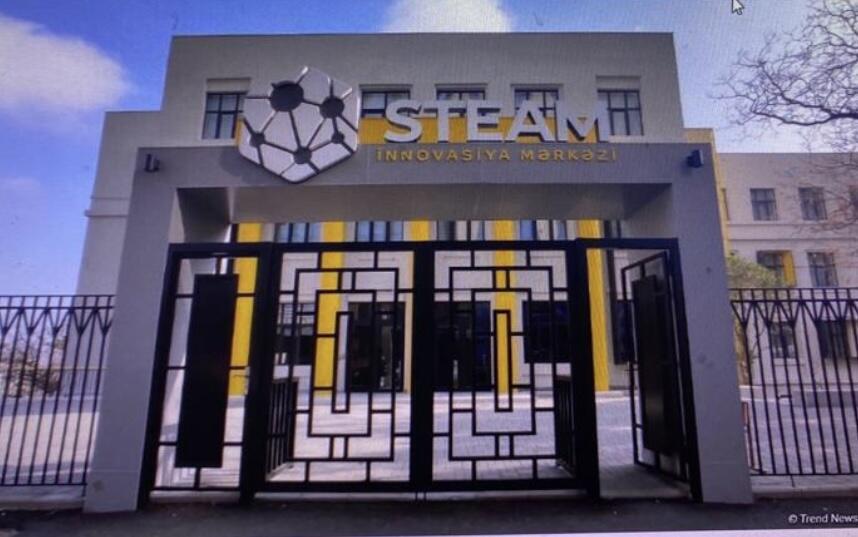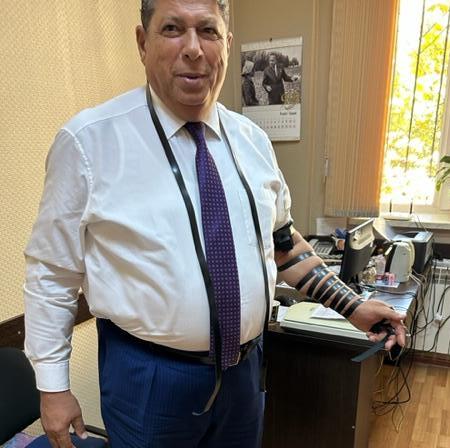The taxi driver who caught our attention at the terminal of Baku airport immediately recognized that we were Israelis. In rapid English, and even before starting the taxi, he proclaimed, "We are brothers." During the half-hour we rode with him, Prof. Aviad HaCohen and I heard over and over about the unexpected "familial" closeness to the citizens of a country where the majority of the population is Shia Muslim.
Read more:
When we arrived at the hotel, the reception staff, the restaurant workers, and the bartenders each took turns telling us, "We are brothers," "We are best friends," "We love Israel"—a warm emotional outpouring that is hard to believe can still be heard today in Europe or North America. Do they know something that we don't? It turns out they absolutely do not. There's just one difference: The governmental system in a country with about ten million residents, similar to Israel, makes it a point to keep its citizens updated about the very close relations between the two countries.
4 View gallery


President Isaac Herzog lays wreaths at the grave of the third president of Azerbaijan and at the Shahidlar monument in Baku
(Photo: GPO)
During the three days of the international conference of researchers held by the Dan Center (Bar-Ilan University) on the topic "The Heritage and Culture of the Jews of North Caucasus," I met many Azerbaijanis in the conference halls and various sites of the city. Almost everyone who knew about my identity was quick to say a few kind words about the State of Israel and offer warm compliments to the president of the state and his wife, Isaac and Michal Herzog.
Their visit a few months ago, as it seemed, was a huge success. Researchers from various countries (U.S., Russia, Germany and more) attended the conference. All of them, Jews and non-Jews alike, heard praise and compliments about the State of Israel that we haven't heard in a long time in our own country.
What is ORT network doing in Azerbaijan?
A random conversation with Arthur Lenk, a former Israeli ambassador to Azerbaijan, led me to decide to arrive in Baku a day before the conference. During a late-night chat on the streets of Baku, about a year ago on a Saturday night, Lenk told me that he is working in the Azerbaijani state on behalf of ORT. This raised the question: What does the Israeli educational network ORT have to do with the education system in Azerbaijan? The more I heard, the more curious I became. I learned that the civilian aid once given by the State of Israel, mainly to African countries, is now taking on new forms in Azerbaijan.
"Most of the Israeli activity and relations between the two countries are not openly discussed, both in Israel and in Azerbaijan. However, it is widely reported that 50% of the oil imported to Israel comes from Azerbaijan, on top of extensive trade relations, consulting and activities in various agricultural sectors. There is also significant and substantial tourist movement"
Most of the Israeli activity and relations between the two countries are not openly discussed, both in Israel and in Azerbaijan. However, it is widely reported that 50% of the oil imported to Israel comes from Azerbaijan, on top of extensive trade relations, consulting and activities in various agricultural sectors. There is also significant and substantial tourist movement, to the point where it seems that there is no tourist site in Azerbaijan where Hebrew is not the most commonly heard language.
Much more information than this is hard to come by, even though last March, Azerbaijan opened an embassy in Israel. Conversely, Israel has had an embassy operating in Baku for many years. The current ambassador is George Deek, an Orthodox Christian Arab from Jaffa, who has the distinction of being the first Christian Arab appointed as an ambassador to represent the Jewish state in a Muslim country.
On that same night-time walk through the streets of Baku, Lenk revealed to me that after finishing his role as ambassador, he initiated and established the connection between the education system in Azerbaijan and ORT. I heard about the unique significance of this collaboration from ORT Deputy Director-General Dr. Sharon Greenberg who serves as the head of research, development, and training for the Israeli education network.
In Baku, I heard more about this in extensive conversations with Avaz Mammadov, an expert in international cooperation who coordinates the subject in the international relations department of the Azerbaijani Education Ministry. From both individuals, it was clear that there was great satisfaction regarding the development of the relationship, and most notably in terms of their enormous contribution to both education systems.
Last summer, the ORT’s research and development center hosted the seventh round of educational delegations from Azerbaijan. Seven delegations, totaling 350 Azerbaijani education leaders, came for three weeks of training in Israel, and they are the best testimony to the success of the collaboration.
But that's not all—each school principal arriving in Israel is paired with an ORT school principal, and the latter travels once a year to work with the Azerbaijani principal at their school there. The background to the collaboration originated in a report that the Azerbaijani government commissioned from the Israeli ORT network in preparation for comprehensive reforms in the education system.
The report recommended transitioning to an innovative model developed in Israel, to prepare students in the Central Asian country for the future job market. The Azerbaijani government accepted the recommendations and signed a memorandum of understanding with the network, according to which ORT will train hundreds of teachers and managers in innovative pedagogy and in science and technology studies.
Why not in Israel?
Already at the beginning of 2019, the first principals and teachers were trained in a five-week seminar hosted by ORT in Israel. During their stay, they learned, experienced, watched and tried out the best programs, visited schools, and met with the leading teaching staff of the ORT Israel network. Among the programs delivered were nanotechnology, brain sciences, the core subject matter and mobile learning.
An additional complementary two-week training seminar for the group of teachers took place in Baku a few months later. Due to the success of the first round, it was decided to expand the collaboration and hold additional rounds.
The first part of the seventh round started in May 2023 at the research and development center of the ORT network in Israel, with the participation of 50 school principals, teachers and officials from the Azerbaijani Education Ministry, accompanied by Mukhtar Mammadov, the new and first Azerbaijani ambassador to Israel. During June 2023, as mentioned, the seventh training course for 50 school principals and teachers from Azerbaijan concluded, spanning three weeks in Israel and one week in Baku.
The success of the ORT network in its international activities is first and foremost evidence of the extraordinary achievements it has reached professionally and educationally. Moreover, the saying "a prophet is not recognized in his own town" is again validated.
As for me, someone who was enrolled many years ago in the Israeli education system, and whose grandchildren are enrolled in it today, this arouses much envy. Why wouldn't this network, with its exceptional achievements, serve as a model for the educational activities of the Education Ministry?
Where is Azerbaijan heading educationally? We could have argued about this already in our first meeting with Avez Mammadov from the local Education Ministry. Early in the morning, he came to take us to the STEAM Institute for school students, built in Baku by the Finnish government, which has the best education system in the world.
The Institute for Technological Education is a young and impressive institution that has been operating for a year, and about 12,000 students have passed through it, and as many will pass through it each year of operation.
One never tires of seeing surprises and unconventional learning means that introduce ordinary school students to the secrets of science. A flight simulator, mathematical formulas, a giant globe with tens of thousands of illuminating details in various lights and more and more surprising devices and tools through which the student learns and understands how 21st-century scientific innovations occur. After visiting the STEAM Center, it was clear to us that ORT is indeed the educational framework that is most likely to best serve the educational challenges of Azerbaijan.
The Jewish member of parliament
On the sidelines of a conference where more than a hundred researchers discussed the past, present and even future of the Jewish community—a conference hosted by the Dahan Center (Bar-Ilan University) in the beautiful building of the University of Languages in Baku, in collaboration with other academic institutions, including Ashkelon College—I meet one of the participants, Rafailov Anatoliy Xaimovic, a Jewish member of the local parliament, the House of Representatives.
There are 125 members in the Azerbaijani parliament, and the entire Jewish community counts no more than 30,000 Jews, far fewer than the number of votes needed to elect a member of parliament. Yet, Prof. Xaimovic, a senior surgeon, proudly represents the Jewish community in the Muslim parliament.
In the hallways of the university, he meets with Rabbi Shneor Segal, who quickly helps him put on tefillin. Every week, he says, he meets with Rabbi Segal for the purpose of laying tefillin. Three of his brothers are involved in trade in Moscow; one brother, a doctor, lives in New York, and only he has remained in his hometown—Baku—where he has attained the rank of professor at the university hospital.
He tells of his past that his family has lived in Baku for generations, and for 11 generations, they were community rabbis. "Working in the hospital made it difficult to maintain a Jewish way of life, but I never gave up or compromised," he says.
Regarding his turn to political life, he says that upon retiring, he gave up the possibility of moving to Moscow or New York and decided to stay in his city. And what about Israel? I quickly ask him. That option did not seem appealing to him. "There is no antisemitism here, so I feel good in the place where I was born."
Today, he represents the Kuba region—"the Red City," in the northeast of the country, an area where a large Jewish community (more than 20,000 Jews) once lived, and today only about 3,000 Jews remain, most of whom are very wealthy. He is very involved in Jewish issues, and Rabbi Segal, who operates a large Jewish school in Baku, highly praises Prof. Xaimovic for his efforts.
"More than anything, I am interested in and working on the subject of Israel and Azerbaijan. There is much to be done, but it's forbidden to speak, and there are many things I myself do not know," Xaimovic reveals. "We have an Israel-Azerbaijan friendship lobby in parliament, and through it, I am active."
"Israel and Azerbaijan is a great love story," concludes parliament member Xaimovich, "I believe that this will continue for many more years. We need you no less than you need us."




